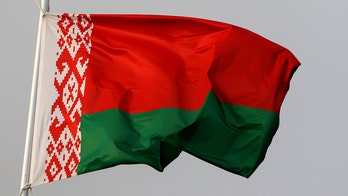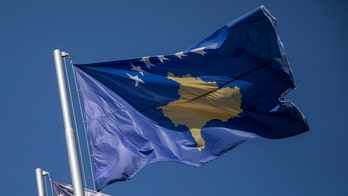In the lead-up to European Union parliamentary elections, an exit poll has predicted that Geert Wilders' far-right Party for Freedom will make significant gains. The poll suggests that the party may emerge as the largest in the Netherlands, challenging an alliance of social democrats and greens.

The Netherlands has kicked off the European Union's four-day parliamentary elections with an exit poll that indicates a potential surge in support for far-right parties. Geert Wilders' Party for Freedom is projected to secure seven seats in the European Parliament, a significant increase from its current one, while an alliance of social democrats and greens could obtain eight.

Despite falling short of his overwhelming victory in the Netherlands' national elections in November, Wilders expressed jubilation at the party's improved performance. He aims to build on this momentum and advocate for reduced EU powers, empowering member states on issues like migration and climate change.
Paradoxically, Wilders supports strengthening the European Parliament, believing that he can weaken the EU from within. The final results for the entire EU will be unveiled in Brussels after polls close on Sunday night.
Frans Timmermans, the leader of the social democrat-greens alliance, remains optimistic, despite their loss to Wilders in the national elections. He emphasized the Netherlands' diversity and the presence of a pro-EU majority that seeks a stronger Europe.
Wilders, however, insists that the tide is turning in the opposite direction and calls for a broad alliance of hard-right parties to challenge the traditional coalition of Christian Democrats, Socialists, pro-business Liberals, and Greens.
Populist, far-right, and extremist parties have gained ground in Europe, leading governments in three EU nations and forming part of coalitions in several others. Public support appears to be growing across the continent for these parties.
The EU elections are a significant exercise in democracy, involving nearly 400 million voters electing 720 European Parliament members. These lawmakers have a wide-ranging impact on issues such as climate policies, defense, migration, and geopolitical relations.
The number of elected members per country varies based on population, and after the UK's departure from the EU, the number of MEPs has decreased to 705. MEPs hold significant power in voting on legislation and approving the EU budget.
After the election, MEPs will elect their president during the first plenary session from July 16-19. In September, they will likely nominate the President of the European Commission, a position currently held by Ursula von der Leyen, who is seeking a second term.










